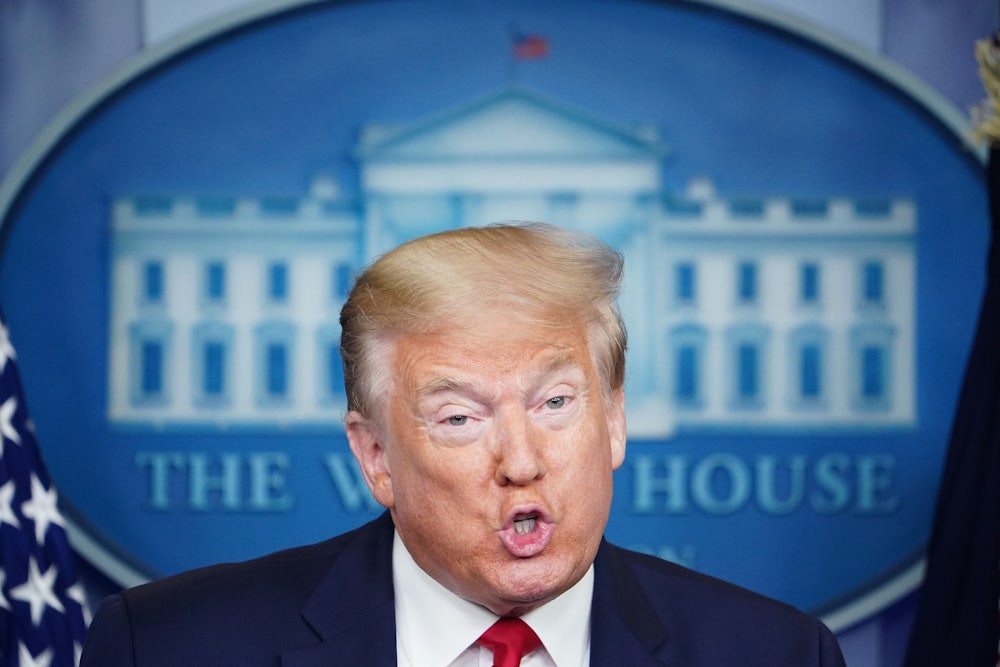“President Trump on Tuesday tweeted to his nearly 80 million followers alluding to the repeatedly debunked falsehood that my wife was murdered by her boss, former U.S. Rep. Joe Scarborough,” Timothy Klausutis wrote in a letter sent to Twitter CEO Jack Dorsey last week and published by The New York Times. “Please delete those tweets. My wife deserves better.”
Trump’s cruel lies about Joe Scarborough’s involvement in Klausutis’s wife’s death have been widely condemned by the media, Democrats, and some Republicans. Klausutis’s letter drove home the human cost of Trump’s vicious tweets. Reading his letter you can come to only one conclusion: The president is a monster.
But what do you do about it? Klausutis has a solution, one that is supported by Kara Swisher, who first reported on the letter in the Times: When the president lies and spreads fake news, Twitter should delete the tweets. Twitter, indirectly addressing the backlash that followed Klausutis’s letter, took a different approach, unveiling a new feature that “fact-checks” the president’s tweets and that, unsurprisingly, led to Trump threatening to “close them down.”
These are understandable, if grossly belated (in Twitter’s case anyway), responses to a thorny problem. The president tweets conspiracy theories, cruel and often false personal attacks, and complete nonsense. But the possible solutions are far from straightforward and are often counterproductive. Dorsey could theoretically kick Trump off Twitter, but unfortunately the president of the United States cannot be de-platformed. He would simply grab hold of another bullhorn.
Trump’s unhinged social media presence is often presented as being hypothetically dangerous. His followers might ingest a dangerous and unproven drug to fight Covid-19; his opposition to voting by mail may be a signal to his supporters to challenge the legitimacy of the 2020 election. It is also regularly presented as a kind of sport—never forget that CNN’s Chris Cillizza described Trump as “the Michael Jordan of name-calling.” Klausutis had a more straightforward and heartbreaking response: Trump’s tweets denigrate “the most painful thing that [he] has ever had to deal with.”
Klausutis’s letter highlights a larger problem with coverage of Trump. Although the media has covered Trump’s lurid attacks on Scarborough with appropriate severity, there remains a strong element of political theater to the controversy. Trump rose to prominence in part thanks to Scarborough, whose ratings saw a boost when he featured Trump on his show. Now the two are on the outs. It’s practically a boxing match: Round 4,000 of Trump vs. The Media.
Klausutis depicts the president’s actions as a human travesty, rather than a political one. The president doesn’t care at all about people who are grieving; all he cares about is a television host who was mean to him. That these tweets have been sent out in the midst of a pandemic that has killed 100,000 Americans only underscores the president’s blatant disregard for anyone who isn’t himself.
But deleting these tweets, or “fact-checking” them, doesn’t change Trump’s fundamental awfulness. There is an understandable fixation on the president’s Twitter feed, a direct window into his state of mind. (It is also a venue for policy pronouncements: It was only a few months ago that he appeared to declare war on Iran in a tweet.) But it is far from the only medium in which Trump acts like a deranged person. He has suggested that injecting disinfectant could kill coronavirus, in a press conference. He has implied that Megyn Kelly was on her period in a Fox News–hosted debate. I could go on.
The discussion of his Twitter feed is the latest manifestation of a larger “adults in the room” problem. There is a desire for Trump to have something like an editor who can get him to stop saying and doing insane things at all hours of the day. People have looked to former Chief of Staff John Kelly as one such savior. Robert Mueller was, in his own way, another. Democrats won the 2018 midterms in part by promising to be a check on the president; they impeached him soon after, and very little changed. Calling on Twitter to step in and fact-check—or decide which of the president’s bizarre ideas meet a nebulous set of standards—is a new iteration of an old idea. With a little bit of effort, the president could be made into something less monstrous.
But Trump is a monster. Jack Dorsey could do everything in his power to clean up the cesspool that he helped create, and there still would be no hiding Trump.
